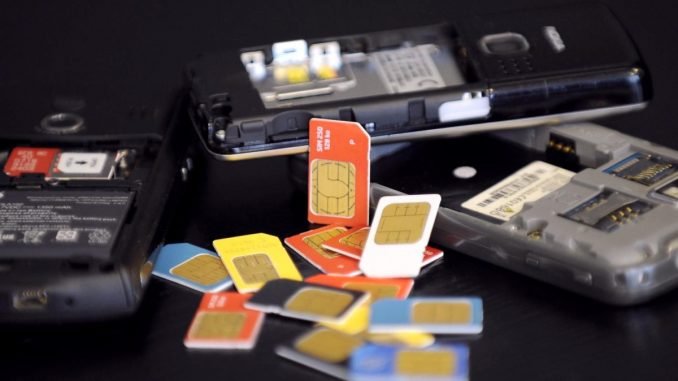
Kampala, Uganda | URN | Telecommunications regulator, Uganda Communications Commission (UCC) has lifted the ban on company SIM card registration.
A statement issued by Ibrahim Bbosa, the head of PR and UCC spokesperson indicates that the decision to lift the ban on SIM card registration that was announced on June 26, 2020, was reached in a meeting between the regulator and telecom operators on Oct 17, 2020.
In June, UCC directed all telecom operators to suspend the sale of SIM cards to corporate bodies including companies, Non-Government Organisations (NGOs), ministries, departments and agencies of government (MDAs) and other unnatural persons.
Although UCC didn’t give a reason for the suspension, this publication understands the move was prompted by complaints from the Uganda Police Force about the increasing cases of fraud by people using SIM cards registered in the names of companies and NGOs.
Weeks after the ban was announced, hackers accessed Pegasus systems, the aggregator of MTN, Airtel, Stanbic bank and Bank of Africa where they authorised mobile money transactions worth Shs 10 billion to over 2,000 SIM cards fraudulently registered in names of 40 local firms and foreigners.
The lifting of the suspension hasn’t come without any conditions. According to the new terms, prior to selling a SIM card to a company incorporated under the Companies Act 2012, the telecoms are required to obtain a certified copy of the companies’ certificate of incorporation, certified copy of the particulars of the directors of the company; certified copy of the form showing the registered location/place of business of the company and a copy of the companies’ Taxpayer Identification Number (TIN) certificate issued by the Uganda Revenue Authority (URA).
“A copy of the national identity card of the managing directors or chief executive officer of the company, if Ugandan citizen, or a copy of a valid passport for a foreign managing director or chief executive officer. The passport must contain a valid visa or immigration status as indicated in the passport,” the guidelines read.
Adding that, “for nationals of the East African Community, a copy of a valid passport shall suffice, in addition to a letter on the company’s letterhead signed by the managing director or chief executive officer authorising the purchase of the subject SIM card(s) by the company and the purpose for which the SIM cards are being purchased.”
Bbosa says that with the new guidelines, telecom operator must carry out a company search at the Uganda Registration Service Bureau (URSB) to certify the authenticity of the company documents provided by the applicant for a corporate company before the SIM cards are activated.
“The cost of conducting a company search shall be borne by the company applying for SIM cards. The telecom operators shall only issue the SIM card to the company after receiving confirmation from URSB about the authenticity of the company documents provided,” the statement reads.
NGOs are required to present a certified copy of the NGO’s permit and a letter of good standing from the NGO Bureau, a letter signed by the accounting officer of the NGO addressed to a specific telecommunications operator requesting to acquire the SIM cards.
The letter must specify the purpose for which the SIM cards are sought. Telecoms are also tasked to ascertain the purpose for which an eligible body has applied for SIM card(s) in its name.
“Where the SIM card(s) is to be used by an individual/employee of the company, or entity, the telecom operator must decline to register the SIM card as a corporate registration and instead advise the individual intended to use the SIM card to be the one to acquire it in his or her name using his National ID, for Ugandans, or passport, for foreigners,” reads the guidelines.
Read Also: Uganda ranked poor among countries with bad sim-card registration policies
UCC has directed that the sale of SIM cards to corporate bodies must not be outsourced and must be done at the designated operator’s customer service centres.
“Telecoms must register a maximum of 100 corporate SIM cards on its network. Where an eligible corporate body requests to acquire more than 100 (one hundred) SIM cards on any telecom operator’s network, the telecom operator must advise the corporate body to seek for express written approval from the Commission.”



